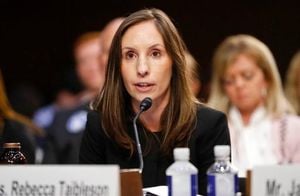Hospitals across India are facing mounting pressure to restore critical cashless and government-backed medical services, as thousands of patients find themselves caught in the crossfire between healthcare providers, insurers, and state authorities. Recent days have seen a flurry of appeals and counter-accusations, with patient care and access to affordable treatment hanging in the balance.
On September 15, 2025, the Association of Healthcare Providers of India (AHPI) and the Indian Medical Association Hospital Board took a bold step, publicly demanding that Star Health and Allied Insurance immediately reinstate cashless services for policyholders. According to Medical Dialogues, AHPI cited an “alarming situation” in which Star Health Insurance had suspended cashless facilities at numerous hospitals, including prominent names like Manipal Hospital in Delhi and Gurugram, Max Hospitals in North India, Metro Hospital in Faridabad, Medanta Hospital in Lucknow, and Rajiv Gandhi Cancer Hospital in New Delhi. This move has left hospitals scrambling to manage a surge of distressed patients, many of whom suddenly face the daunting prospect of arranging funds for urgent medical care.
The situation has not been confined to just a handful of institutions. AHPI, which represents over 15,000 hospitals and healthcare institutions nationwide, revealed that Star Health has also slowed or outright stopped the empanelment of several hospitals—including Fortis Hospital in Manesar, Max Hospital in Dwarka, and Medanta Hospital in Noida. This means that patients are being denied the option to seek treatment at their preferred hospitals, and many families are forced into cumbersome reimbursement processes, undermining the very promise of health insurance.
“Patients buy health insurance with the clear expectation of receiving cashless treatment at quality hospitals. It is unjust for insurers to withhold this facility after collecting premiums, leaving families to scramble for funds at the time of hospitalisation,” declared Dr. Girdhar Gyani, Director General of AHPI, and Dr. Abul Hasan, Chairman of the IMA Hospital Board, in a joint statement reported by Medical Dialogues. Their message was unequivocal: “AHPI strongly insists that cashless services must be restored immediately to all affected hospitals, to protect patients from financial and emotional stress, and empanelment of new hospitals must be expedited, so that patients can access care across India without disruption.”
The AHPI’s frustration boiled over on September 12, 2025, when it issued a formal notice to Star Health, accusing the insurer of “unfair practices” and warning that its member hospitals would suspend cashless services by September 22 if the situation was not remedied. The notice underscored the growing impatience among healthcare providers, who argue that the current impasse is placing an unacceptable burden on both patients and hospitals alike.
Star Health, however, pushed back against the allegations. In a statement, the insurer criticized AHPI for making “threats of suspending cashless services in a manner that is arbitrary, lacking clarity or actionable details.” The General Insurance Council, representing the broader insurance industry, threw its weight behind Star Health, urging AHPI to withdraw its threat of disrupting cashless services and assuring the public that “policyholders’ access to healthcare remains fully safeguarded.”
AHPI, for its part, rejected accusations of arbitrariness. According to Medical Dialogues, the association insisted that its actions were a necessary response to what it described as Star Health’s own “unilateral and arbitrary” decisions to de-empanel hospitals and withdraw cashless services. The standoff has left patients and healthcare providers alike in a state of uncertainty, with no immediate resolution in sight.
While the dispute between Star Health and private hospitals has dominated headlines in the nation’s capital and major metropolitan areas, a parallel crisis is unfolding in the southern state of Telangana. On September 17, 2025, Backward Class Welfare Minister Ponnam Prabhakar issued a heartfelt plea to private hospitals in Karimnagar and Warangal districts, urging them to immediately resume Aarogyasri services—a state-run health insurance scheme designed to provide free treatment to the poor.
The suspension of Aarogyasri services, Prabhakar warned, was causing “severe hardship to poor patients.” According to the Deccan Chronicle, he appealed to hospitals to “reconsider their decision from a humanitarian perspective,” emphasizing that the welfare of the poor should take precedence over financial disputes. Prabhakar highlighted the state government’s commitment to the scheme, noting that under the leadership of Chief Minister A. Revanth Reddy and Health Minister Damodara Rajanarasimha, the free treatment limit under Aarogyasri had recently been doubled from Rs 5 lakh to Rs 10 lakh.
Backing up these assurances with hard numbers, Prabhakar revealed that the government had paid Rs 1,779 crore to private hospitals across the state over the past 21 months. Charges for 1,375 medical treatments had been increased by an average of 22 percent, and 143 new, expensive medical services—costing the government an additional Rs 487.29 crore—had been added to the scheme. Monthly payments to hospitals had also climbed, rising from Rs 57 crore to Rs 75 crore. In a bid to address immediate cash flow concerns, Prabhakar said that Rs 100 crore had been released to private hospitals within just two days and credited to their accounts, with pending dues set to be cleared in installments.
“Health Minister Damodara Rajanarasimha is in constant touch with hospital managements to resolve the issue,” Prabhakar assured, signaling the government’s willingness to engage in dialogue and find a solution. The underlying message was clear: while the state’s finances may be stretched, the government remains committed to safeguarding the interests of its most vulnerable citizens.
These dual crises—one involving a leading private insurer and the other a flagship state health scheme—underscore the fragility of India’s healthcare financing ecosystem. As hospitals, insurers, and governments grapple with rising costs, delayed payments, and administrative hurdles, it is ordinary patients who bear the brunt of service disruptions. For families already reeling from medical emergencies, the sudden loss of cashless or subsidized care can be nothing short of catastrophic.
Healthcare experts say the current impasse highlights the urgent need for greater transparency, streamlined processes, and more robust mechanisms for dispute resolution between stakeholders. Without these, the risk of similar standoffs—and the suffering they inflict on patients—will only grow.
For now, the calls for compassion and accountability are ringing louder than ever. Whether those calls will translate into meaningful action remains to be seen, but one thing is certain: the stakes could hardly be higher for the millions of Indians who depend on cashless and government-backed health services for their very survival.




